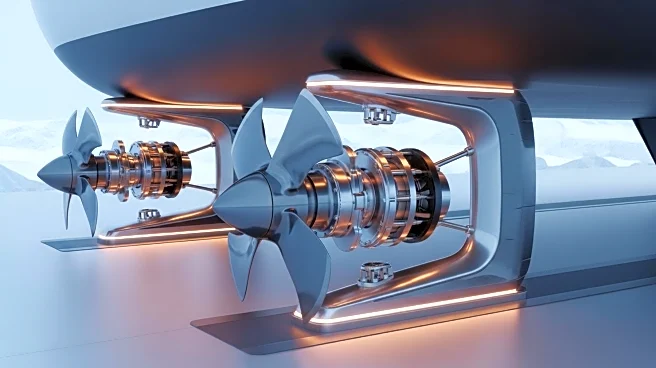What's Happening?
Finnish propulsion expert Steerprop has been selected to power Germany's next-generation polar research icebreaker, the new Polarstern, with a state-of-the-art azimuth propulsion system. This system is designed to deliver exceptional reliability, minimal underwater noise, and long-term cost efficiency, supporting the vessel's demanding scientific mission in fragile polar environments. The propulsion system includes two Steerprop SP 160 PULL ARC LM azimuth propulsors, the largest mechanical units of their kind, each delivering 9 MW of power. The new Polarstern, built by TKMS for the Alfred Wegener Institute, is set to enter service in 2030, operating in the Arctic and Antarctic for up to 310 days a year.
Why It's Important?
The new Polarstern's advanced propulsion system is crucial for its mission in ecologically sensitive polar regions, where minimizing acoustic disturbance is essential. The system's predictive maintenance capabilities ensure maximum uptime and cost efficiency, vital for the vessel's expected 30-year service life. Steerprop's involvement in the hydrodynamic design of the vessel's propulsion system underscores the importance of integrating cutting-edge technology to meet high standards of reliability and environmental protection. This development highlights the growing emphasis on sustainable and efficient solutions in polar research, contributing to the understanding of climate change and marine ecosystems.
What's Next?
The new Polarstern will continue the research conducted by AWI's existing icebreaker, gathering vital data on climate change and marine ecosystems. As the vessel prepares to enter service in 2030, it will serve as a floating laboratory, supporting Germany's research station in Antarctica. The integration of Steerprop's propulsion system is expected to enhance the vessel's performance in harsh polar conditions, ensuring mission success while minimizing environmental impact. The ongoing collaboration between Steerprop and TKMS reflects a commitment to advancing polar research capabilities.








